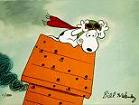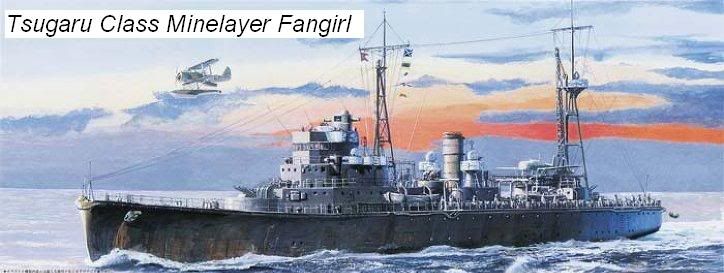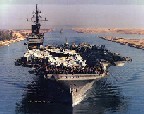ORIGINAL: LoBaron
Strange thing that this type of discussion repeat itself every few months. [:D]
Just for those who don´t know Sardaukars tests, my old buried thread somewhere in the war room or like a summary
for what you can do against sweeps that come in high or what impacts fighter/fighter combat:
A single combat result does not tell you anything as long as you don´t view it in context of other combats or
draw the right conclusions from it. High losses against a sweeper can mean you got a bad day and the dice was against you.
THINK whom you are fighting against and what he will try to implement to maximize his results. And then do it also. There is
no single winning attribute to fighters, but if you know how to max every factor you can turn your fighter squad into this single winning attribute. There are limited but numerous ammounts of things to consider, which basically are:
1) Number of planes. Naturally the more the better. Just don´t forget that there are points of diminishing return.
2) Airframe type. There are dedicated high altitude fighters, dedicated turn fighters, interceptors, escort fighters, different armaments, some multi purpose planes. Read the plane stats. Or read books on the planes. Its easy to find out which is which with a bit of training. Use the types in their dedicated rolls for best success.
3) When on defensive: have radar available, try to work with mutually supporting bases, set the units for mission patterns that enable you to fight another day...
4) When on CAP: use split CAP techniques. Draw the sweepers down to You Favourit Alt and hit em with a small hammer from above if possible.
5) Get a training programme running that focuses on A2A, defensive AND Exp improvement. If you are outclassed by the driver and stay outclassed you should only fight in concert with 1)
6) Get your high skill leaders into the frontline units. Leader dice rolls can have major impact on the battles.
7) If you think you will conctantly be outclassed and outnumbered: pull back. There is no such situation where stay and fight shows a brighter future than pulling back except if you can´t or have to buy time to redistribute your forces.
8) If you have the numbers available and still lose, try to find the factors that could have negatively impacted the fight and change them. If you don´t find any, look harder. If you still don´t find any, consider things you don´t see (like enemy pilot skill)
9) Try to make life hard for the attacker yourself. Sweep him, bomb him, hurt his supply lines.
TheElf did wonders with the old combat engine. Gaming the system is possible but even then the final outcome and the tendencies shown in the real war are reflected by the results on the long run.
Thank you LoBaron for this good overview - once again! [;)]
Just for the single sweep/CAP battles I would like to stress the importance of
SKILLS aside from experience. You mention it but its importance is apparently lost because Castor Troy (and others) don't use it with their arguments. In the example used (yes, only one fight) it is clear to me the Zero's loose the fight (also) because the Hurricane pilots have a good Air (=Offensive; not A2A) skill where the Zero's have no good Defensive skill. Aside from other factors negatively influencing the Japanese performance (Zero's probably missing good leadership etc.). For any analysis/comparison of such 'twisted' results it is necessary to have more information on pilot's skills and other circumstances aside from 'just' pilot's experience!
The diving message will also occur when lower positioned fighters (sweep or CAP) attack poor Defensive skill pilots above them. The dive message signifies initiative and surprise which happens when good pilots (high experience + skills + good leaders.) fight poor Defensive groups. So even though it does say 'diving' it doesn't perse mean it is actually having an altitude advantage to start with!!! In addition other circumstances might help gaining surprise of course, like radar. A good to very good Defensive skill also helps defeating enemy fighters which do get a shooting position.
But like theElf is saying, players might choose to go way out of 'historical' realities and choose maximum altitudes. Thereby gaining a huge plus (that's a game mechanic 'plus' for calculation purposes) against 'normal' altitude opponents. That max altitude bonus can't be outdone by even the best skills and such (building plusses) thus it is tweaking/gaming the system to use those unhistorical altitudes.
Now one side is advocating to repair the system code to make sure unhistorical altitudes just don't offer such an advantage (that huge plus) and others are saying the players should simply decide not to twist the game mechanics and play 'historically'. In my view both are right. An ideal game mechanic should make the unhistorical choice to operate at max altitude unsustainable. After all it isn't unhistorical for no reason! (Btw, what would those reasons be? I can think of a few, but . . . anyway.) But not having that ideal game code present shouldn't deter people from playing according to historical realities even when it means sacrificing a possible unrealistic advantage. House rules could be put in place to cover that.
But I think we'd all love to have a game system mechanic with the already present historical altitude bands plus performance and such, which does represent historical possibilities and outcomes even when players go to the extremes. It does come close however! The system isn't bad at all and does offer a great simulation in an
abstract way of air combat during WW2.
As a side note to spotting:
Doesn't WW2 history tell us that mostly enemy planes were not spotted/recognized!? It just didn't happen on a regular basis. Wasn't it mostly great eyesight and experience (plus coincidence) where spotting was more of a regular, but still very coincidental, occurance? That's why radar was such a great invention. It helps massively knowing where the enemy is in order to spot them.
As a side note to the experience/'second hand information' debate:
We should take into account that much of that 'second hand knowledge' (in books, reports, etc.) is of course derived from first hand experience (as in interviews with pilots and/or from pilots themselves). So we shouldn't discount such information just because it's not directly heard from the one experiencing the phenomenon.
Good gaming all!

















 you are most obvious the AE god and know how to handle everything, you even believe your guides lol. Now the pity is that I am talking about my Lightnings that are shredding the enemy´s second generation fighters. Nothing is broken and I´m fine with mentioning again that you blow out your senseless fantasy blah blah about pre Cap flak too and we all know how it turned out. But you sure can ignore that as long as you wish. AGAIN, I´m not saying there is something bugged, it´s the design that is working exactly how it was designed and doing ceiling sweeps is gaming the system (quote air team lead).
you are most obvious the AE god and know how to handle everything, you even believe your guides lol. Now the pity is that I am talking about my Lightnings that are shredding the enemy´s second generation fighters. Nothing is broken and I´m fine with mentioning again that you blow out your senseless fantasy blah blah about pre Cap flak too and we all know how it turned out. But you sure can ignore that as long as you wish. AGAIN, I´m not saying there is something bugged, it´s the design that is working exactly how it was designed and doing ceiling sweeps is gaming the system (quote air team lead).